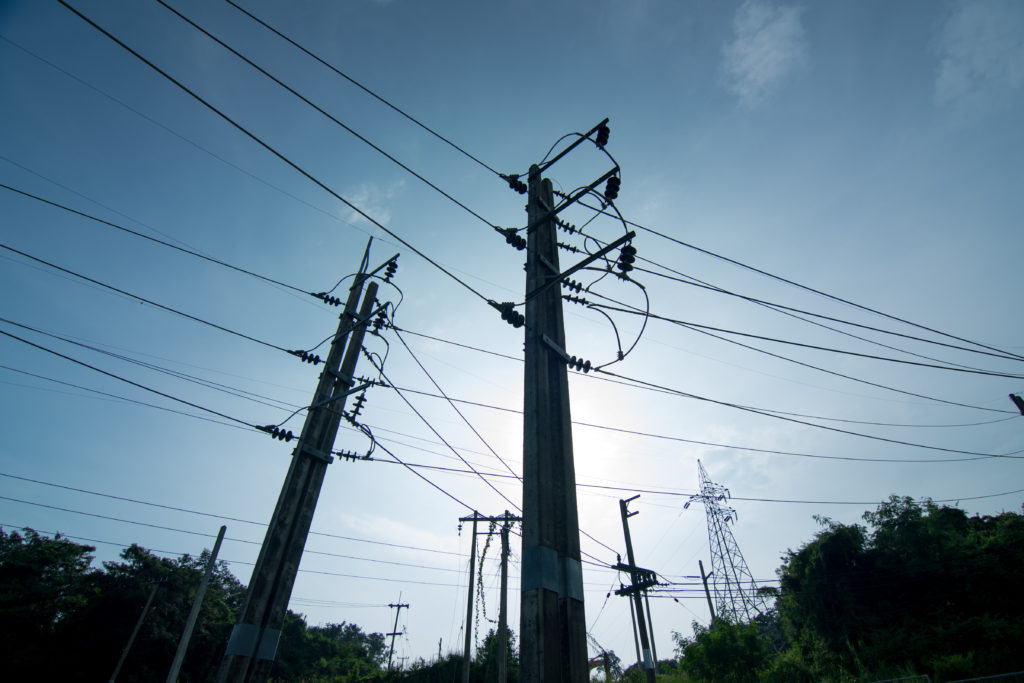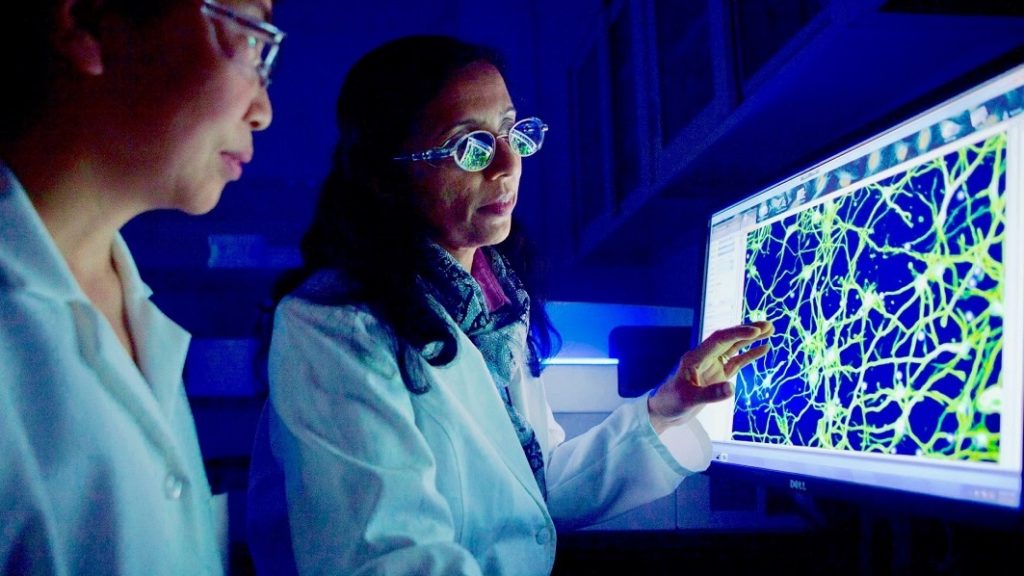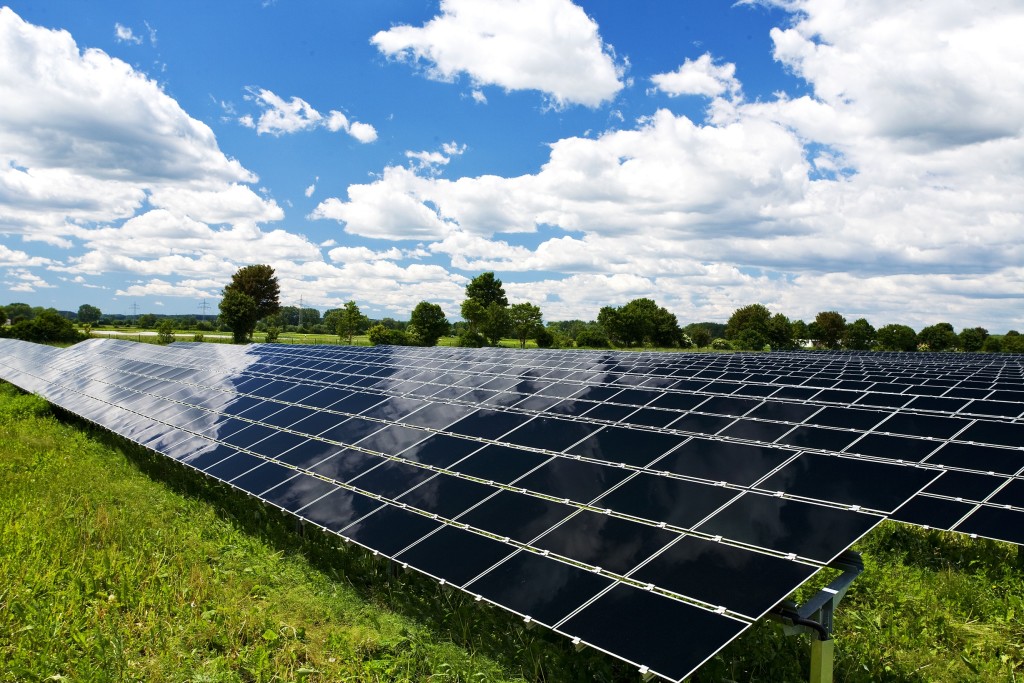Alabama Power to pay state fine, stop coal burning at plant

Alabama Power Co. will pay $75,000 in fines and stop burning coal in a unit that released too much hydrochloric acid at a generating plant north of Mobile under an agreement with state environmental regulators. The settlement came as the utility agreed to a consent order from the Alabama Department of Environmental Management following a violation at the Barry Steam Electric Generating Plant in Mobile County in August, al.com reported. Under the agreement, the company must stop burning coal in the plant’s Unit 4 by 2028. Alabama Power already had announced plans to convert the unit to burn natural gas, but now it must do so to comply. Testing showed emissions of hydrochloric acid slightly above allowed levels, according to a statement from the company. Alabama Power said it reported the problem to the state and agreed to an order proposed by the agency. State regulators said they considered the release a “serious violation” that was considered a repeat problem since the plant also exceeded the limit in 2020. Republished with the permission of the Associated Press.
BCA seeks to replace Billy Canary after several high-profile departures

The Business Council of Alabama says it’s looking for a new chief executive following a wave of high-profile departures. The Montgomery-based nonprofit issued a statement Thursday saying it will have a new leader to replace president and CEO Billy Canary no later than Jan. 1. The move comes after four of the state’s largest companies quit the organization, with some openly questioning its leadership. Alabama Power Co., Regions Bank, Blue Cross Blue Shield and PowerSouth Energy Cooperative all left the organization in recent days. The Montgomery Advertiser reports the moves came after the Business Council refused demands to remove Canary by Sept 1. Officials with the organization say they wanted an orderly transition to replace Canary, who’s run the business group since 2003. Republished with the permission of the Associated Press.
Analysis: Alabama bioscience industry’s impact tops $7.3 billion a year

Alabama’s multifaceted biosciences industry generates $7.3 billion in economic activity annually while supporting 780 companies and nearly 48,000 direct and indirect jobs across the state, according to a new analysis by researchers at the University of Alabama. The comprehensive study underscores the contributions and growth potential of the statewide life sciences sector, a robust combination of research institutions, medical labs, innovative startups, international pharmaceutical manufacturers and more. “We have exceptional strengths in biosciences, including world-class research organizations and a roster of cutting-edge companies, so it’s a natural growth area for the state,” said Greg Canfield, secretary of the Alabama Department of Commerce. “We’re committed to helping accelerate the development of the life sciences sector, and we want the state to become home to more of these high-paying jobs and the talented individuals to fill them,” he added. Massive impact The analysis, conducted for the BioAlabama industry trade group, shows that Alabama’s 780 life sciences companies directly employ 17,871 workers, each earning an average annual salary of $67,664. Total expenditures of those companies exceed $3.8 billion a year. Other key findings in the University of Alabama report: The bioscience industry’s 47,980 direct and indirect jobs in Alabama support a total yearly payroll of $2.3 billion. The industry contributes $3.9 billion annually to Alabama’s gross domestic product (GDP), nearly 2 percent of the state’s total economic output. The industry’s earnings impact generates $161.4 million in tax revenue annually, including $74.7 million in state income taxes and $86.7 million in state and local sales taxes. In addition, the UA researchers examined the economic contributions of bio-industries such as agricultural feedstock and chemicals, and bioscience-related distribution. They found that these activities magnified the impact of the core life sciences sector in Alabama, elevating overall economic output to $11 billion a year with more than 70,000 jobs and annual tax revenue topping $233 million. “This analysis confirms the far-reaching impact of Alabama’s bioscience industries throughout the state, and demonstrates why we continue to pursue strategies that allow the sector to continue to grow and create even more high-caliber jobs across the state,” said Blair King, president-elect of BioAlabama and manager of economic development and existing industry at Alabama Power Co. Diverse activities The foundations of Alabama’s bioscience research rest on the work conducted by the University of Alabama at Birmingham (UAB), Southern Research, the HudsonAlpha Institute for Biotechnology, and the University of South Alabama’s Mitchell Cancer Institute. The specialties of these organizations include drug discovery and development, genomics, and personalized medicine. They also frequently engage in collaborations such as the Alabama Drug Discovery Alliance, a partnership between UAB and Southern Research that has developed a pipeline of potential therapeutics for diseases such as cancer and diabetes. Alabama is also home to multinational companies involved in pharmaceutical and medical device manufacturing. In March, Germany’s Evonik, for example, announced plans to expand production of biomaterials and launch a Global Competence Center for Medical Devices at its Birmingham facility. “Evonik’s investments in the Birmingham site reflect its commitment to the medical device and drug delivery business as well as the city of Birmingham and its history of world-class medical research and technology,” said Kel Boisvert, Birmingham site manager for Evonik. Other manufacturers operating in the state include Kowa Pharmaceuticals (Montgomery), Nektar Therapeutics (Huntsville), Baxter and Pharmavite (both Opelika), and Oxford Pharmaceuticals, Avanti Polar Lipids and BioHorizons (all Birmingham). At the same time, a number of innovative startup companies have sprung up in Alabama, with many of them based at HudsonAlpha and Birmingham’s Innovation Depot, the Southeast’s largest technology business incubator. Promising startups include Birmingham’s Blondin Bioscience, Huntsville’s GeneCapture, Mobile’s Swift Biotech and Auburn’s Vitruvias Therapeutics. “We are fortunate to have started our business in Alabama because we have benefited from the highly collaborative entrepreneurial spirit throughout the state, including Alabama Launchpad and the various Small Business Development Centers, and especially our connection with HudsonAlpha and the University of Alabama in Huntsville,” said BioAlabama President Peggy Sammon, CEO and co-founder of GeneCapture. “We have been able to find highly skilled molecular biologists, chemical engineers, optical engineers and lab specialists,” she added. “Our membership in BioAlabama has connected us with other scientists and business professionals who have significantly helped us advance our business plan.” Alabama’s research universities are key players in the bioscience ecosystem and contribute to the industry’s economic impact. The network includes Auburn University, USA, Tuskegee University, Alabama State University, Alabama A&M University and the three University of Alabama System campuses. The analysis is the first to comprehensively examine the economic impact of the state’s bioscience sector. It was prepared by Senior Research Economist Sam Addy, Ph.D., and his team at the Center for Business and Economic Research at the University of Alabama’s Culverhouse College of Business, with assistance from BioAlabama. Addy noted in the report that investing in life sciences should remain a pillar of the state’s overall economic development strategy. “Alabama should continue to keep biosciences as a focus in its economic development strategy since these industries provide high-wage jobs and are highly productive,” he writes. What others say “Since launching its cancer program in 1946, Southern Research has discovered seven FDA-approved oncology drugs and made many significant discoveries that have helped patients with cancer and other diseases,” said Art Tipton, Ph.D., president and CEO of the Birmingham nonprofit. “This highlights the vital importance of the groundbreaking bioscience work that continues to be done in labs in Alabama.” “I see UAB as not only the hub for healthcare innovation in Birmingham, but definitely throughout the state and the region,” said Kathy Nugent, Ph.D., executive director of UAB’s Harbert Institute for Innovation and Entrepreneurship. “That means producing as many companies as possible. It’s harder to produce biotech companies, because it takes time to develop new drug therapies. What we’re trying to do is think about it strategically and give our faculty the resources they need to be entrepreneurial to turn their research into new life sciences ventures.” “HudsonAlpha has gone from just a handful of startups and faculty to more than 35 life sciences companies and 15 faculty investigators in just 10 years,” said Carter Wells, vice president for economic development at HudsonAlpha. “It goes to show that Jim Hudson and Lonnie McMillian’s model works, and we’re proud
Environmentalists challenge Alabama Power’s solar fees

An environmental group claims Alabama Power Co. is wrongly charging fees that increase costs for customers who install solar panels. The Southern Environmental Law Center and others filed a complaint Thursday with the Alabama Public Service Commission challenging surcharges the utility imposes on homes, businesses and schools. The group says Alabama Power’s fees for customers with solar arrays amount to about $300 annually, cutting into savings they’d otherwise receive from using solar. It says the fees add about $9,000 in cost over the lifetime of an average solar system. Critics say the charges are depressing Alabama’s solar-power industry, which trails much of the nation. The petition asks the commission to bar Alabama Power from collecting the additional charge. Alabama Power says it was reviewing the complaint and declined further comment Friday. The utility-regulating Public Service Commission let the charges take effect about five years ago. Most people with rooftop solar arrays also purchase power from utilities, and the fee is charged in addition to customers’ normal bill for electricity. The Southern Environmental Law Center and a Birmingham-based law firm, Ragsdale LLC, filed the complaint on behalf of two people and Gasp Inc., which advocates energy production that reduces air pollution. Gasp executive director Michael Hansen, in a statement, said neighboring states are experiencing business and job growth linked to the solar energy industry that largely is bypassing Alabama because of the utility’s policies. “If solar customers were treated fairly, Alabama would have the opportunity to reap these same benefits,” he said. Alabama Power is a subsidiary of the Atlanta-based Southern Co. Utility regulators in neighboring Georgia rejected a similar solar surcharge proposed there by Georgia Power Co., also a Southern Co. subsidiary, in 2013. Republished with the permission of the Associated Press.


